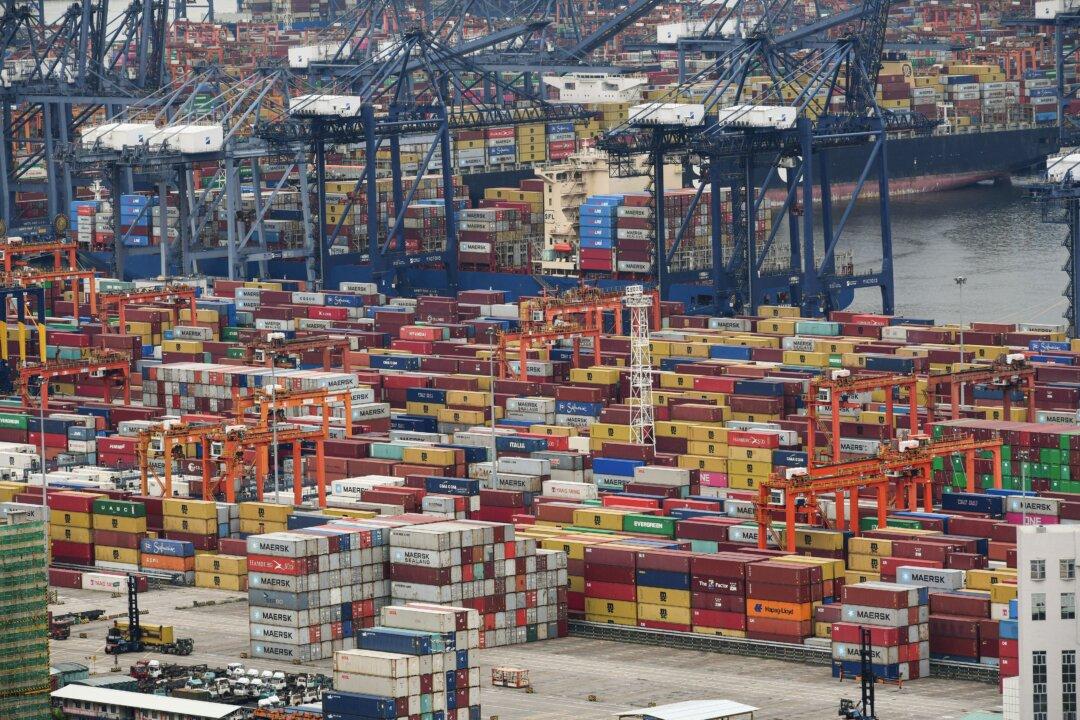Since August, the price of container freight from China to the United States has soared ten times, setting a record high. Due to the CCP (Chinese Communist Party) virus pandemic, containers shipped from China cannot return immediately after unloading at their destinations, causing congestion due to empty cargo rotation and limited shipping capacity.
Global shipping prices continue to rise as containers become difficult to find. Since January, the cost of container shipping has grown four times. As of Sept. 17, the China Containerized Freight Index (CCFI) has increased by 90.34 percent from the beginning of 2021.






